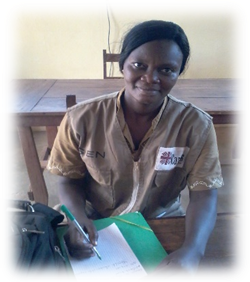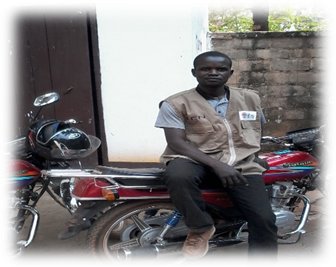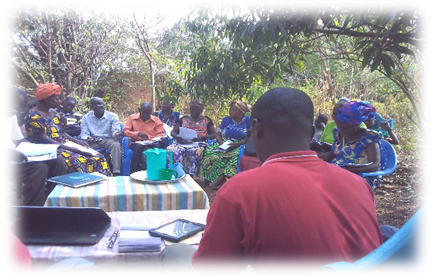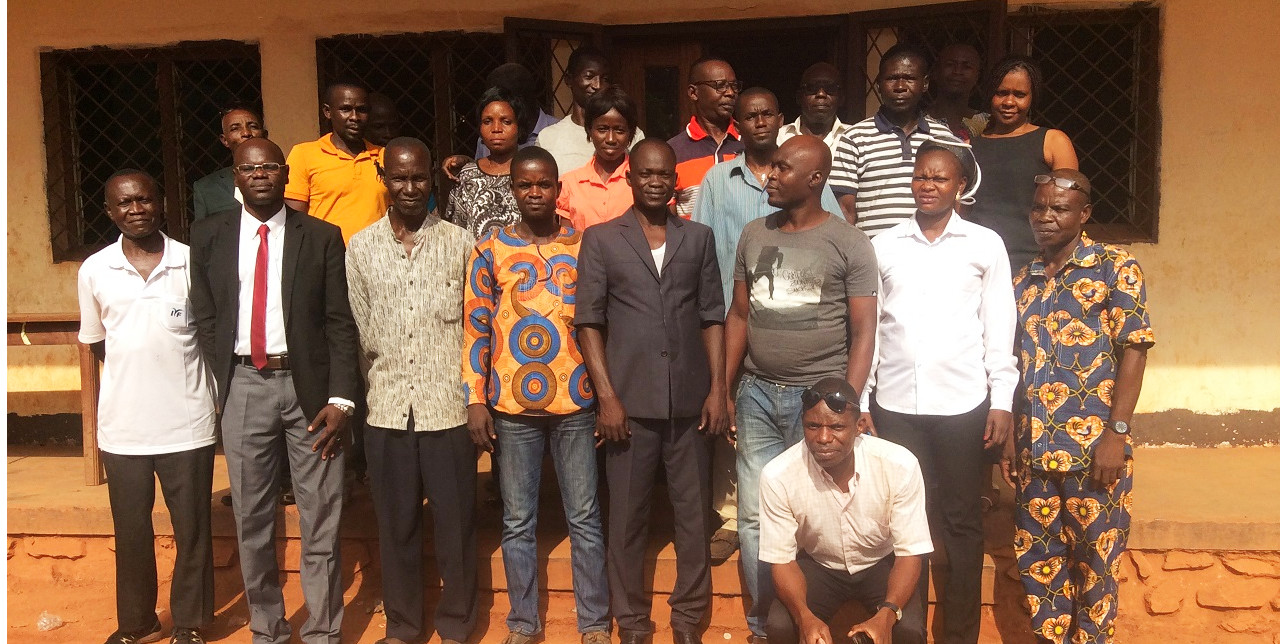18-03-2019 | di COOPI
CAR: trainers talk about the PARFEC project
Mrs Aurélie Ndomanguere and Mr Alain Pounika are two of the trainers involved in the PARFEC project (Support for the relaunch of the urban and peri-urban breeding industry in the Central African Republic), financed by Bêkou Trust Fund of the European Union, which aims to improve the food security of the population of the Bangui district and its surroundings in the Central African Republic.
To improve the economic and organisational needs of the small livestock sector, a NGO consortium, headed by COOPI, is aiming to strengthen the technical support, improve inter-community management issues and thrive the institutional capacity of the producers, by creating a group of 15 trainers.
Under the supervision of CARITAS CAR, trainers are contributing to encourage the training unit of FNEC, the National Federation of Central African Breeders. Thanks to their support, by the end of the project, the Federation will serve as breeders’ local supervisor again, providing a permanent and economic veterinary support and advice service.
To better understand how the training team works, let's share the experiences of Mrs Ndomanguere and Mr Pounika.
Mrs Ndomanguere, can you explain in detail what a trainer does on a daily basis for the PARFEC project?
We carry out our daily tasks under the direct supervision of a technician to whom we must report our activities, together with other partners of the consortium. More precisely, we are responsible for:
- Training poultry, pig and fish farmers;
- Raising awareness among farmers about their membership within the consortium and the FNEC;
- Taking part in training sessions on breeding techniques (poultry, pigs and fish) organised by the PARFEC project, with the support of government services;
- Providing advisory support and technical follow-up for farmers;
- Identifying the farmers’ training needs;
- Supporting breeders' associations and others to implement other projects.
These tasks let trainers become part of a structured network, which supports small farmers in the district of Bangui and surroundings.
What are the main challenges you face while working on the field?
There are several challenges we face every day and some of them involve:
- difficulties in monitoring and reporting the activities carried out by the beneficiaries, because most of them are employed during the working days;
- a roughly insufficient school education level among the beneficiaries, who are mainly fishermen and breeders. This factor makes it more difficult for some participants to understand the content of the training during the workshops.

Mrs Aurélie Ndomanguere, one of the Parfec project's trainer.
Now let’s give the flow to Mr Pounika Alain, Aurélie's colleague.
Mr Pounika, how do you rate the training you received on breeding techniques during the PARFEC project?
Training courses are run by managers of the National Agency for Livestock Development (ANDE) and it is their responsibility to provide for such activities. They certainly represent an added value - during these sessions we were able to further deepen our knowledge, share our experiences and better organise supervision and/or advisory activities to the beneficiaries of the PARFEC project.

Mr Pounika Alain, on the Parfec project's trainer.
We would now conclude by sharing the experience of Cyril Viron, COOPI project leader in CAR: "The PARFEC project will improve food security, addressing approx. 1,400,000 individuals (ICASEE projection, 2013), who will be able to consume and afford high quality proteins. In addition, an important source of urban and peri-urban employment, such as small-scale livestock farming, will benefit from this initiative, by creating stable incomes. Eventually, strengthening the livestock sector will be a profitable opportunity for all beneficiaries in this region, who often disagree on organisational matters, as a consequence of the tensions arose during the conflicts of the last five years. Work for the common good, create and maintain business relationships and understand the livestock supply chain are the key activities for a peaceful coexistence and a stronger social cohesion.”

Farming training session in Bangui.




 Central African Republic
Central African Republic